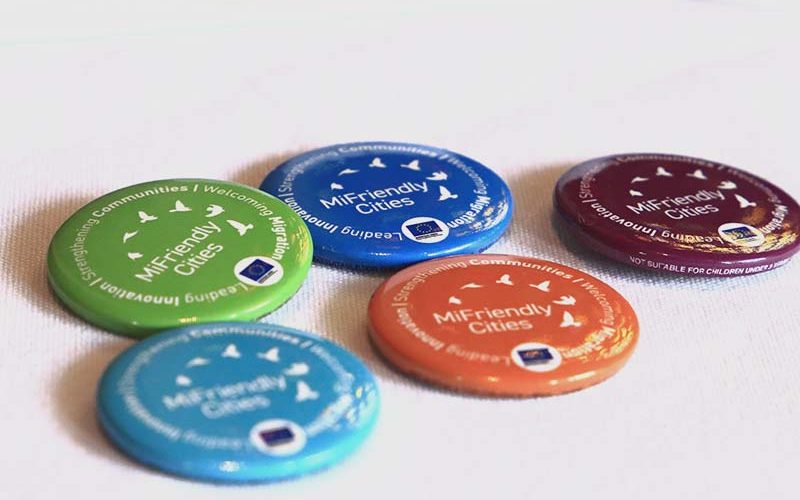29/3/2018

Where projects aimed at integration have often focused on how newcomers can be reshaped to fit the mould of their new community, this ground-breaking project will be taking a different approach. The MiFriendly Cities project aims to recognise the skills, passion and voices of refugees and migrants across the region by embracing what they themselves can bring to their communities, empowering them to access their rights and feel they are full-fledged citizens.
With the project aiming to find ways for urban authorities and civil society across the 3 cities to collaborate and work more effectively together around immigration, communication between the project partners has been paramount. MiFriendly team members from every organisation came together on 19th March for the first time since the project launch to discuss individual progress and exchange knowledge, enabling stronger development and implementation of the solutions proposed in the MiFriendly Cities bid.
Discussion of the individual projects being undertaken by partners provided insight into how the MiFriendly Cities message has begun to spread. Nazek Ramaden, Director at Migrant Voice said of their progress so far: “We have been busy setting up the project and preparing for delivering our Media Lab training sessions. It’s great to see there is already media interest in the project as we have been contacted by Free Radio Birmingham which aired our interview about the project and our involvement in it on March 9th.”
Sinead Ouillon, Programme Leader at the City University Initiative provided an exciting development from the project partners at Coventry University Centre for Trust Peace and Social Relations. She said: ‘’We have been given a workshop by Coventry University Faculty of Arts and Humanities to open up a pop up furniture factory in Coventry as well as the one in Wolverhampton, in this way we can make best use of existing facilities and we have now advertised for an expert skills instructor to help us deliver the training and home makeovers.’’ Along with the CRMC refurbishment plans, this sees a major step forward in realising the long-term infrastructure plans that form a major part the ideals of the project.
The Coventry Refugee and Migrant Centre (CRMC) has moved forward with its plans to refurbish their new home at Norton House (Hope House), whilst also holding a launch event on 28th March, where Councillor Tony Skipper, Lord Mayor of Coventry, revealed a new plaque to mark the occasion. Toni Soni, Centre Director, was on hand to provide an overview of plans for redesigning the space, a major project and infrastructure plan being funded through the UIA project. He has been meeting with architects to put together 3 designs, one of which will be chosen by staff and clients to be used as a community and exhibition space, café area and office accommodation.
A launch event at the end of May will be a major milestone, as the project moves towards engaging with the wider public, media and potential Stakeholders, with opportunities for everyone to engage, interact and find out how they can get involved. The event will see the project partners, local employers and politicians, as well refugees and migrants from our local communities and migration networks come together to celebrate the Initiative, with the build up to the big day being be marked with a series of ‘Meet the Team’ videos on the MiFriendly Cities YouTube channel, where viewers can get a taste of things to come and see what each partner will bring.
www.uia-initiative.eu/en/uia-cities/coventry
Back to news posts
This project is co-financed by the European Regional Development Fund through the Urban Innovative Actions Initiative.